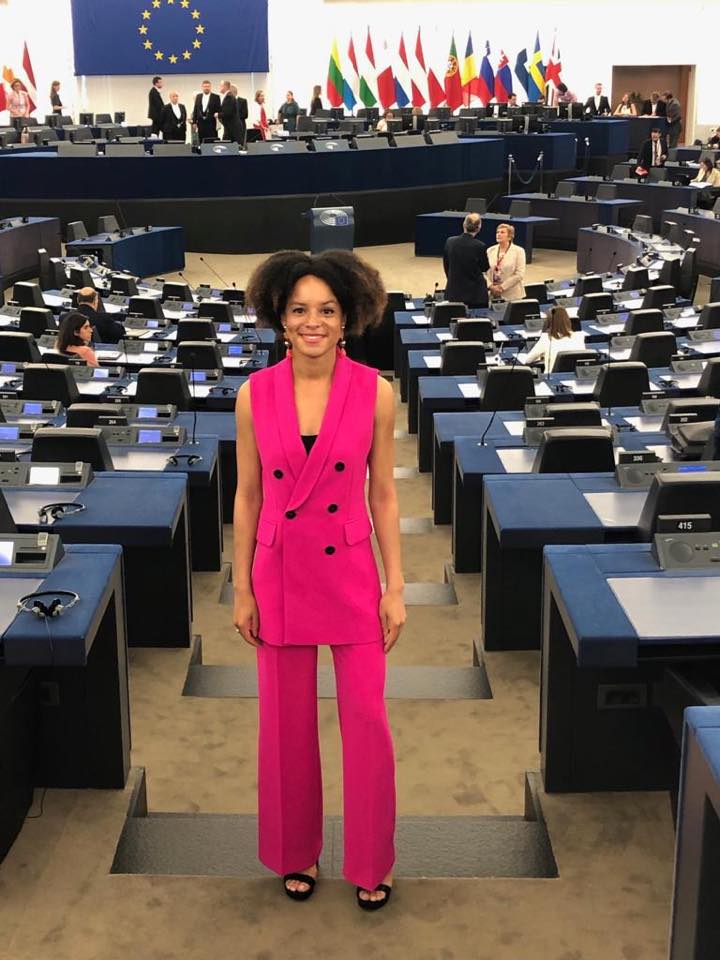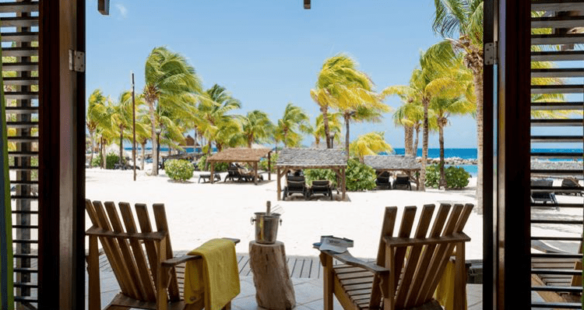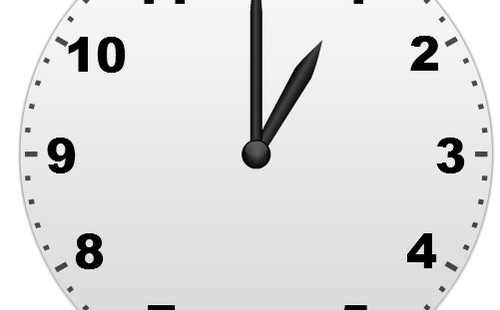Rafaela voert druk op Europese Commissie op Cariben te helpen

Door Koninkrijksrelaties.Nu
Straatsburg – Europarlementariër Samira Rafaela (D66) heeft onmiddellijk na het door het Europees Parlement aannemen van een resolutie over de crisis in Venezuela een brief gestuurd naar EU-commissaris van Migratie Dimitris Avramopoulos.
Rafaela roept de Europese Commissie daarin op meer steun te verlenen aan de tot de lidstaten behorende eilanden in de Cariben bij de opvang van Venezolaanse migranten en vluchtelingen, zoals zij dat woensdagavond ook deed in het plenair debat van het Europees Parlement in Straatsburg.
Hieronder de brief van Rafaela, alsmede een verklaring van het EP en de tekst van de resolutie.
Venezuela: European Parliament calls for additional sanctions
- Full support “for legitimate interim president Juan Guaidó”
- Nicolás Maduro should be held directly responsible for indiscriminate use of violence
- Restrict movements, freeze the assets of those responsible for the crisis
For the third time this year, the European Parliament adopted a resolution on the situation in Venezuela, expressing its deep concern at the severe state of emergency
In accordance with the latest report of the UN High Commissioner for Human Rights, MEPs hold Nicolás Maduro directly responsible, “as well as the armed and intelligence forces in the service of his illegitimate regime, for the indiscriminate use of violence to repress the process of democratic transition and the restoration of the rule of law in Venezuela.”
In the resolution, adopted with 455 votes to 85 and 105 abstentions, they reiterate their full support “for legitimate interim president Juan Guaidó”.
Additional sanctions
MEPs call on the Council to adopt additional sanctions targeting state authorities responsible for human rights violations and repression. EU authorities must restrict the movements of these individuals, freeze their assets and suspend visas, as well as those of their closest relatives.
They support the ongoing facilitated process led by Norway to find a way out of the current impasse and welcome the agreement of both sides to engage in a peace dialogue which should create the conditions for free, transparent and credible presidential elections.
In her declaration on behalf of the EU on Venezuela, High Representative Federica Mogherini warned that the EU will further expand its targeted measures against the responsible authorities if there are no concrete results from the ongoing negotiations.
Arbitrary detentions, torture and extrajudicial killings
MEPs denounce the abuse perpetrated by law enforcement and the brutal repression by security forces. They condemn the use of arbitrary detention, torture and extrajudicial killings and reiterate their support for the International Criminal Court’s investigation into the extensive crimes perpetrated by the Venezuelan regime.
Humanitarian and migration crisis
More than 7 million people in Venezuela are in need of humanitarian assistance, 94 % of the population lives below the poverty line and 70 % of children are out of school, MEPs warn. They also point to the migration crisis in the region as, to date, more than 3.4 million Venezuelans have had to flee the country. Parliament praises the efforts and solidarity shown by neighbouring countries, in particular Colombia, Ecuador and Peru and ask the Commission to continue cooperating with these countries.
Hieronder de volledige tekst van de aangenomen resolutie:
The European Parliament,
– having regard to its previous resolutions on Venezuela, in particular those of 27 February 2014 on the situation in Venezuela[1], of 18 December 2014 on the persecution of the democratic opposition in Venezuela[2], of 12 March 2015 on the situation in Venezuela[3], of 8 June 2016 on the situation in Venezuela[4], of 27 April 2017 on the situation in Venezuela[5], of 8 February 2018 on the situation in Venezuela[6], of 3 May 2018 on the elections in Venezuela[7], of 5 July 2018 on the migration crisis and humanitarian situation in Venezuela and at its terrestrial borders with Colombia and Brazil[8], of 25 October 2018 on the situation in Venezuela[9], of 31 January 2019 on the situation in Venezuela[10] and of 28 March 2019 on the emergency situation in Venezuela[11],
– having regard to the report on Venezuela by the UN High Commissioner for Human Rights of 4 July 2019,
– having regard to the declarations by the Vice-President of the Commission / High Representative of the Union for Foreign Affairs and Security Policy (VP/HR) on Venezuela of 10 January 2019, 26 January 2019 and 24 February 2019, 28 March 2019, 4 April 2019, 30 April 2019, 18 June 2019 and 16 July 2019,
– having regard to the Organisation of American States (OAS) Report on Venezuelan Migrants and Refugees of 8 March 2019,
– having regard to the Fourth International Technical Meeting of the Quito Process, held in Buenos Aires on 4 and 5 July 2019,
– having regard to the Lima Group Statement of 30 April 2019,
– having regard to the Lima Group Declaration of 3 May 2019,
– having regard to the statement on the joint meeting of the International Contact Group and the Lima Group on the situation in Venezuela of 3 June 2019,
– having regard to Council Decision (CFSP) 2018/1656 of 6 November 2018 amending Decision (CFSP) 2017/2074 concerning restrictive measures in view of the situation in Venezuela[12], which renews until 14 November 2019 the targeted restrictive measures currently in place,
– having regard to the Rome Statute of the International Criminal Court (ICC),
– having regard to the Venezuelan Constitution,
– having regard to Rule 132(2) and (4) of its Rules of Procedure,
- whereas between 2018 and 2019 the political, economic, institutional, social and multidimensional humanitarian crisis has significantly worsened; whereas increased shortages of medicines and food, massive human rights violations, hyperinflation, political oppression, corruption and violence are endangering people’s lives and forcing them to flee the country;
- whereas from 19 to 21 June 2019 the UN High Commissioner for Human Rights, Michelle Bachelet, visited the country; whereas she urged the de facto government of Venezuela to take immediate, concrete measures to halt and remedy the grave violations of human rights documented in the country; whereas it has also been acknowledged that for over a decade Venezuela has adopted and implemented a series of laws, policies and practices which have restricted the democratic space, weakened public institutions and affected the independence of the judiciary;
- whereas more than 7 million people in Venezuela are in need of humanitarian assistance; whereas the de facto Maduro government has violated the right to food, including the state’s obligation to ensure that the population is free from hunger; whereas according to the UN, 3.7 million Venezuelans are malnourished, which is particularly damaging for children and pregnant women; whereas 94 % of the population live below the poverty line and 62 % in extreme poverty; whereas 70 % of children are not attending school; whereas some women have been forced to exchange sex for food and have faced violence on numerous occasions;
- whereas the health situation in the country is dire, with hospitals lacking staff, supplies, medicines and electricity, resulting in at least 1 557 deaths between November 2018 and February 2019; whereas there are shortages of essential drugs of 60 to 100 % in four of Venezuela’s major cities, including Caracas; whereas maternal mortality has increased and many women have had to leave the country to give birth;
- whereas more than 3.4 million Venezuelans have had to flee the country; whereas the total number of Venezuelans forced to migrate will have surpassed 5 million by the end of 2019, making this the second biggest migrant and refugee crisis in the world; whereas this migration flow is putting particular pressure on neighbouring countries, but also increasingly on the European Union and on EU Member States’ territories in the Caribbean;
- whereas according to the UNHRC, nearly 7 000 people have been extrajudicially killed during security operations in Venezuela in the past year and a half; whereas the de facto authorities are using FAES (the Special Actions Force of the Bolivarian National Police) and other security forces as part of their policy of social control; whereas the families of those killed extrajudicially during the protests continue to be prevented from exercising their rights to truth, justice and reparation;
- whereas torture is used as a systemic tool by the regime to intimidate and dissuade protestors, thus creating a climate of terror; whereas the UNHRC report found that security and intelligence services, in particular the SEBIN (the Bolivarian Intelligence Service) and the DGCIM (the Directorate-General of Military Counterintelligence), have routinely resorted to such practices; whereas political prisoners in Venezuela are being subjected to torture, and many currently find themselves incommunicado, with no way of contacting their lawyers or their family members, who fear for their lives and physical integrity;
- whereas 22 parliamentarians, including the President of the National Assembly, have been stripped of their parliamentary immunity; whereas 2 parliamentarians are in detention and 16 have either sought protection in embassies, left the country or gone into hiding;
- whereas indigenous peoples are being subjected to violent and criminal acts; whereas 63 members of indigenous communities have been arbitrarily detained and tortured, 7 have died and more than 23 have been injured and had to travel to hospitals outside the country to be treated;
- whereas mining and oil exploitation, especially in remote and biodiversity-rich regions, destroy the livelihoods of minorities, such as indigenous and black communities, who face severe violence and displacement by military forces, organised criminal gangs and armed groups if they oppose these activities and reclaim their rights;
- whereas on 29 June 2019, Rafael Acosta Arévalo, a naval captain who was arrested and tortured over an alleged assassination plot against Nicolás Maduro, died in custody; whereas the de facto authorities seized and illegally concealed his remains for 11 days before burying them, without respecting his family’s basic rights and wish to mourn their deceased;
- whereas on 2 July, Rufo Chacón, a 16-year-old Venezuelan boy, lost his eyesight after being shot in the face by government officers at a protest over the lack of cooking gas;
- whereas the EU has mobilised EUR 117.6 million in emergency relief and development assistance in response to the crisis, working with vulnerable populations in both Venezuela (60 % of the funding) and neighbouring countries (40 %); whereas thus far the support collected by the UN for its regional Refugee and Migrant Response Plan only represents around 22 % of the total requested (USD 159 million out of an appeal for USD 738 million);
- Reiterates its deep concern at the severe state of emergency in Venezuela, which is seriously endangering the lives of its citizens;
- Reiterates its full support for legitimate interim President Juan Guaidó and for the National Assembly, which is Venezuela’s legitimate democratic body and whose powers need to be restored and respected, including the prerogatives and safety of its members; condemns the revocation of the parliamentary immunity of 22 parliamentarians and the incarceration of two; reiterates its concern over the lack of legitimacy of the May 2018 presidential elections;
- Condemns the fierce repression and violence, which have resulted in killings and casualties; expresses its solidarity with the people of Venezuela and extends its sincere condolences to the families and friends of those affected;
- Highlights, in accordance with the report of the UNHRC High Commissioner for Human Rights, Ms Bachelet, the direct responsibility of Nicolás Maduro, as well as the armed and intelligence forces in the service of his illegitimate regime, for the indiscriminate use of violence to repress the process of democratic transition and the restoration of the rule of law in Venezuela; condemns the use, under all circumstances, of arbitrary detentions, torture and extrajudicial killings, which are banned under international conventions, including those to which Venezuela is a signatory;
- Denounces, in accordance with the report of the UNHRC High Commissioner for Human Rights, Ms Bachelet, the abuse by law enforcement officers and the brutal repression carried out by security forces; calls for the establishment of an impartial and independent national mechanism, with the support of the international community, to investigate extrajudicial executions carried out during security operations so as to ensure that those responsible are held accountable, and that the families of the victims are provided with redress and afforded protection against intimidation and reprisals;
- Urgently calls for the availability and accessibility of food, medicines and healthcare services to be guaranteed, while paying special attention to maternal and child services; calls on the de facto Venezuelan authorities to ensure that humanitarian aid is distributed to the entire population without any political bias;
- Stresses the need to cease, publicly condemn, punish and prevent all acts of persecution and selective repression for political reasons; calls for the release of all persons arbitrarily deprived of their freedom;
- Recalls that all intimidation of and attacks against indigenous peoples, including leaders, must be stopped, and that the authorities should ensure their protection and take all necessary measures to protect their individual and collective rights, including their right to land;
- Underlines the need to refrain from engaging in megaprojects in search of sources of income to overcome the economic crisis which are damaging to the environment, the climate and the livelihoods of communities in the area; calls for the unconditional protection of indigenous and black people in remote areas who defend the environment against activities such as gold-mining in the Arco Minero del Orinoco area of Venezuela;
- Draws attention to the increasingly serious migration crisis across the entire region and praises the efforts of and solidarity shown by neighbouring countries, especially Colombia, Ecuador and Peru; requests that the Commission continue to cooperate with these countries, not only by providing humanitarian assistance but also by providing more resources and through development policy;
- Reaffirms that a peaceful, democratic and inclusive solution is the only sustainable way out of the current political impasse and the severe social and humanitarian crisis it has provoked; points out that the ongoing dialogue must take into account the roadmap adopted in the National Assembly of Venezuela; supports the ongoing facilitated process led by Norway and welcomes the agreement by both sides to engage in a dialogue for peace; stresses that for a facilitation process to be successful the minimum confidence-building measures should be enacted; insists that the dialogue’s exclusive aim must be the creation of conditions leading to free, transparent and credible presidential elections based on a fixed calendar, fair conditions for all actors, transparency, and the presence of credible international observers;
- Calls on the Council to impose additional sanctions targeting the de facto state authorities responsible for human rights violations and repression; believes that the EU authorities must restrict the movements of the individuals concerned, and freeze their assets and visas, as well as those of their closest relatives;
- Asks the Vice-President of the Commission / High Representative of the Union for Foreign Affairs and Security Policy (VP/HR) to lead the EU policy on the situation in Venezuela and to continue cooperating with the Contact Group and with the democratic countries of the region represented by the Lima Group;
- Reiterates its support for the investigations by the International Criminal Court (ICC) into the extensive crimes and acts of repression perpetrated by the Venezuelan regime; urges the EU and its Member States to join the initiative of several ICC State Parties to investigate the crimes against humanity committed by the de facto Maduro government in order to hold those responsible to account;
- Supports the initiative to establish a Commission of Inquiry with the UNHRC for the determination of individual responsibilities in the systematic violations of human rights in Venezuela;
- Instructs its President to forward this resolution to the Council, the Commission, the Vice-President of the Commission / High Representative of the Union for Foreign Affairs and Security Policy, the legitimate interim president of the Republic and the National Assembly of the Bolivarian Republic of Venezuela, the governments and parliaments of the Lima Group countries, the Euro-Latin American Parliamentary Assembly, and the Secretary-General of the Organisation of American States.






















